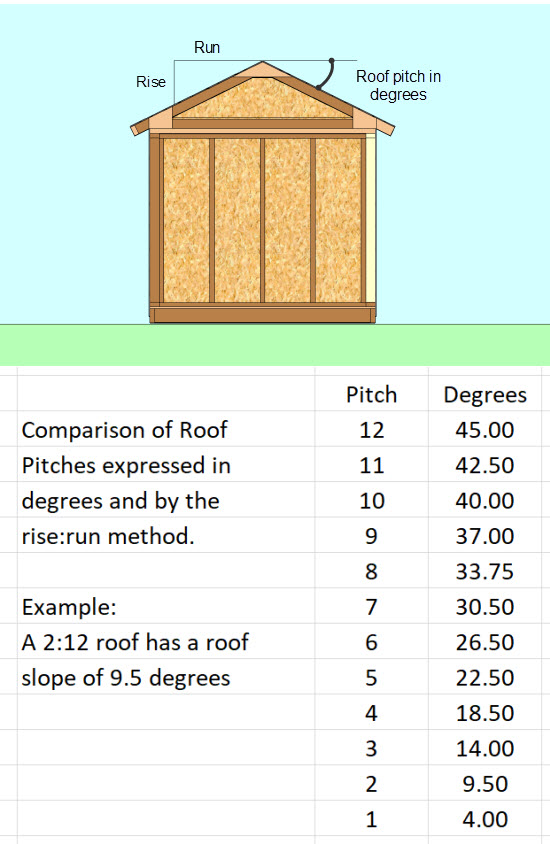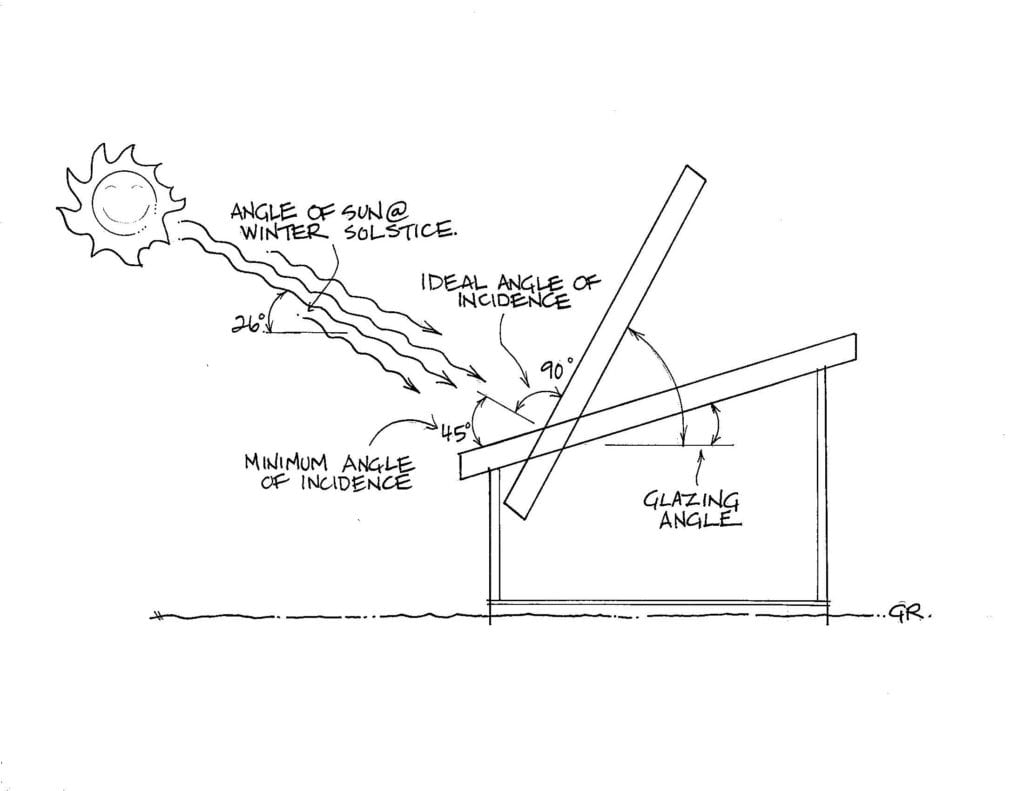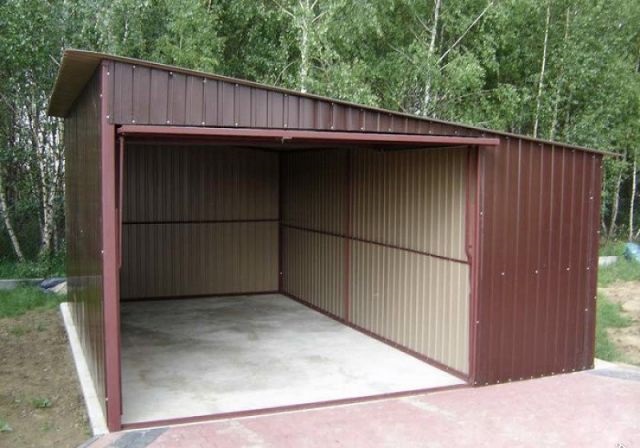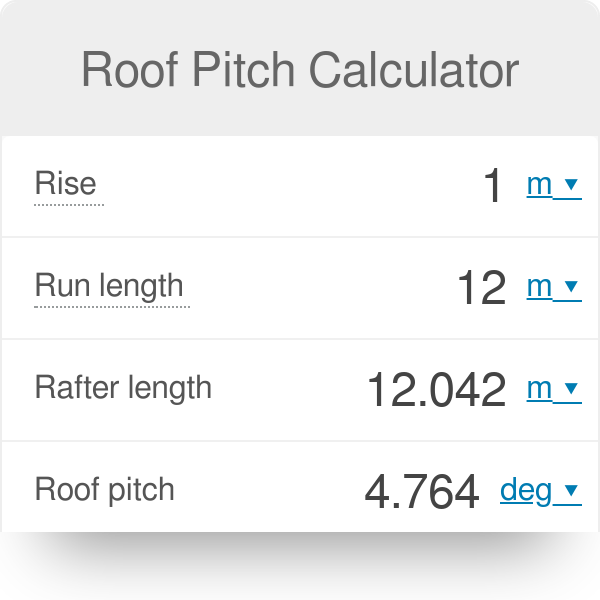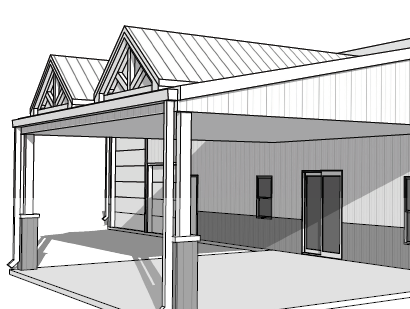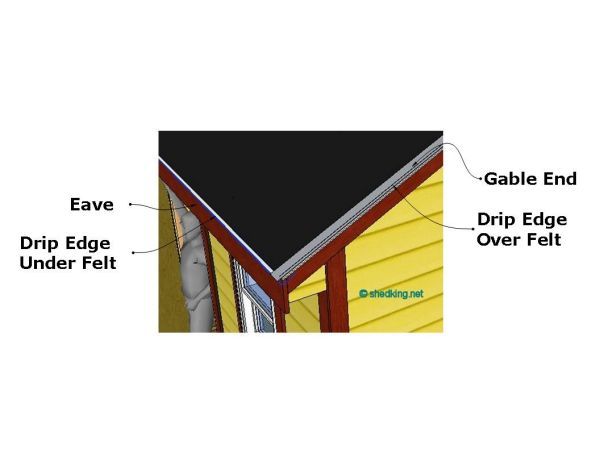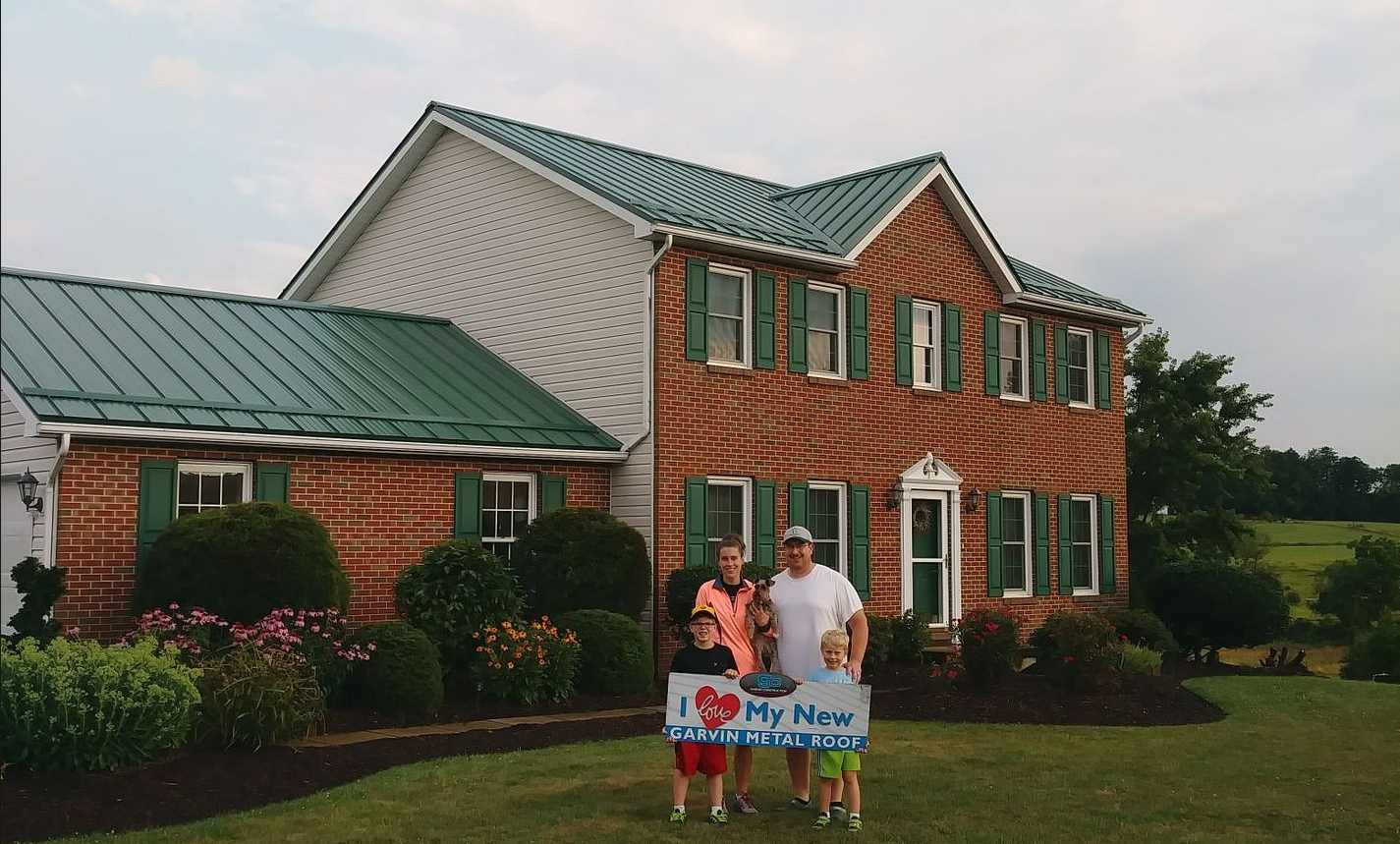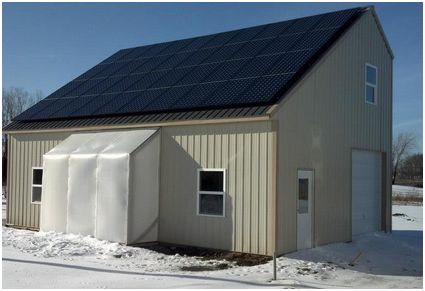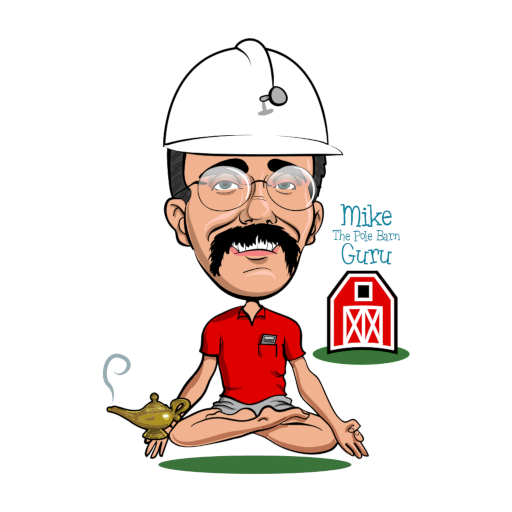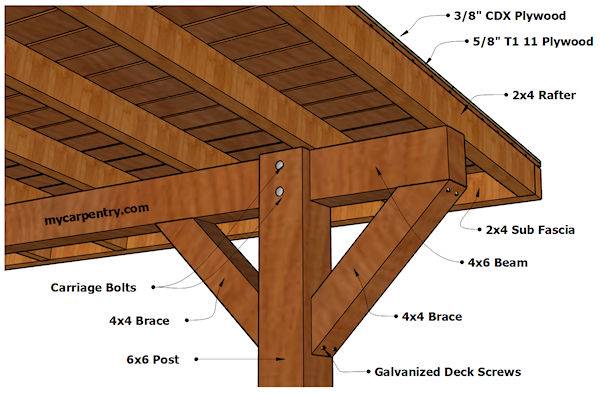Minimum Roof Pitch For Shed No Snow

Degrees to pitch rise in run table.
Minimum roof pitch for shed no snow. The minimum roof pitch is also subject to the standards set forth by the various building codes used in the respective regions. The higher the roof pitch the more often the snow slides off. Constructing a new shed roof at the desired pitch is as easy as knowing how to use a speed square. Run in degrees and as percentage the minimum roof slope allowed by code for any type of roof is in 12 applicable only to coal tar pitch roof systems.
Roof pitch multiplier table. The chief reason for having a roof pitch is to redirect water and snow away from the roof and avoid any percolation that might result from stagnation of water on the roof. Slopes greater than 6 12 will tend to shed snow regardless of the texture of the material on them so roof slopes should be configured to avoid shedding anywhere people might be walking or exiting. The key factors are usually snow loading requirements adequate slope and the use of snow guards when needed.
Which is the easiest shed roof pitch to build. Therefore if your roof rises 4 inches over the course of 12 inches of horizontal run then your roof pitch is 4 12. Roof slope equivalents as rise. Remember that pitch is calculated as the height or rise of a roof pitch over 12 inches of horizontal run.
I always recommend at least a minimum pitch of 1 in 40. The minimum pitch for a roof is 1 4 12 which translates to 1 4 inch rise to 12 inches of run. If these issues are addressed during the design stage and the roofing contractor does his job these systems will almost always perform as intended. Furthermore a roof in a forest should have a slope of at least 2 12 to shed.
Basically the steeper the pitch the better it can shed snow and rain. With expansion and contraction of the metal it is difficult to attach snow retention devices into the roof decking without causing a roof leak or slotting of the metal panel from the snow bracket fastener. There are advantages and disadvantages to having a steep pitch versus a shallow or low pitch the most obvious of which is the roof s ability to shed or withstand heavy snow rain or wind. In my view it has to be the flat roof with a nominal slope.
For example a roof with a 6 inch 12 pitch is one where it rises 6 inches vertically for every 12 inches of the horizontal run. So in general the shallower pitch can be more dangerous with bigger slides. The roof joists can be fixed spanning directly between wall plates. It makes sense when designing a metal roof to shed snow not to keep it on.
The flip side to this is that it also becomes more expensive to build both in. To shed the snow. In general determining the pitch of an existing roof is a simple calculation. Metal roofing systems have a good track record of performance in harsh winter environments as long as they are properly designed.
My reasoning for this is that all that is required is a simple beam. As stated in the.
